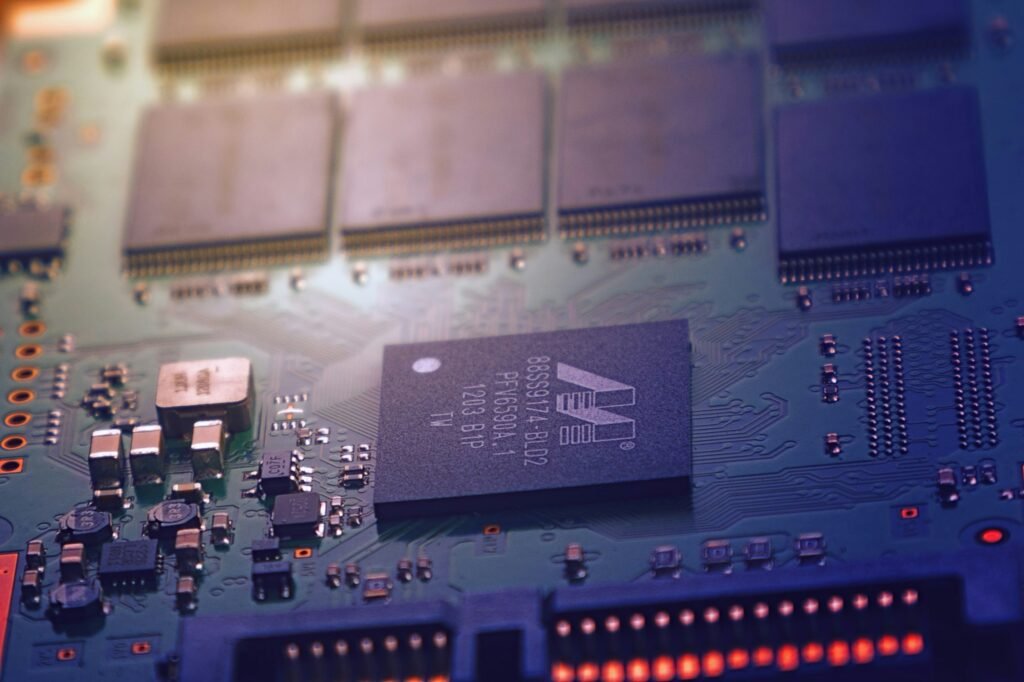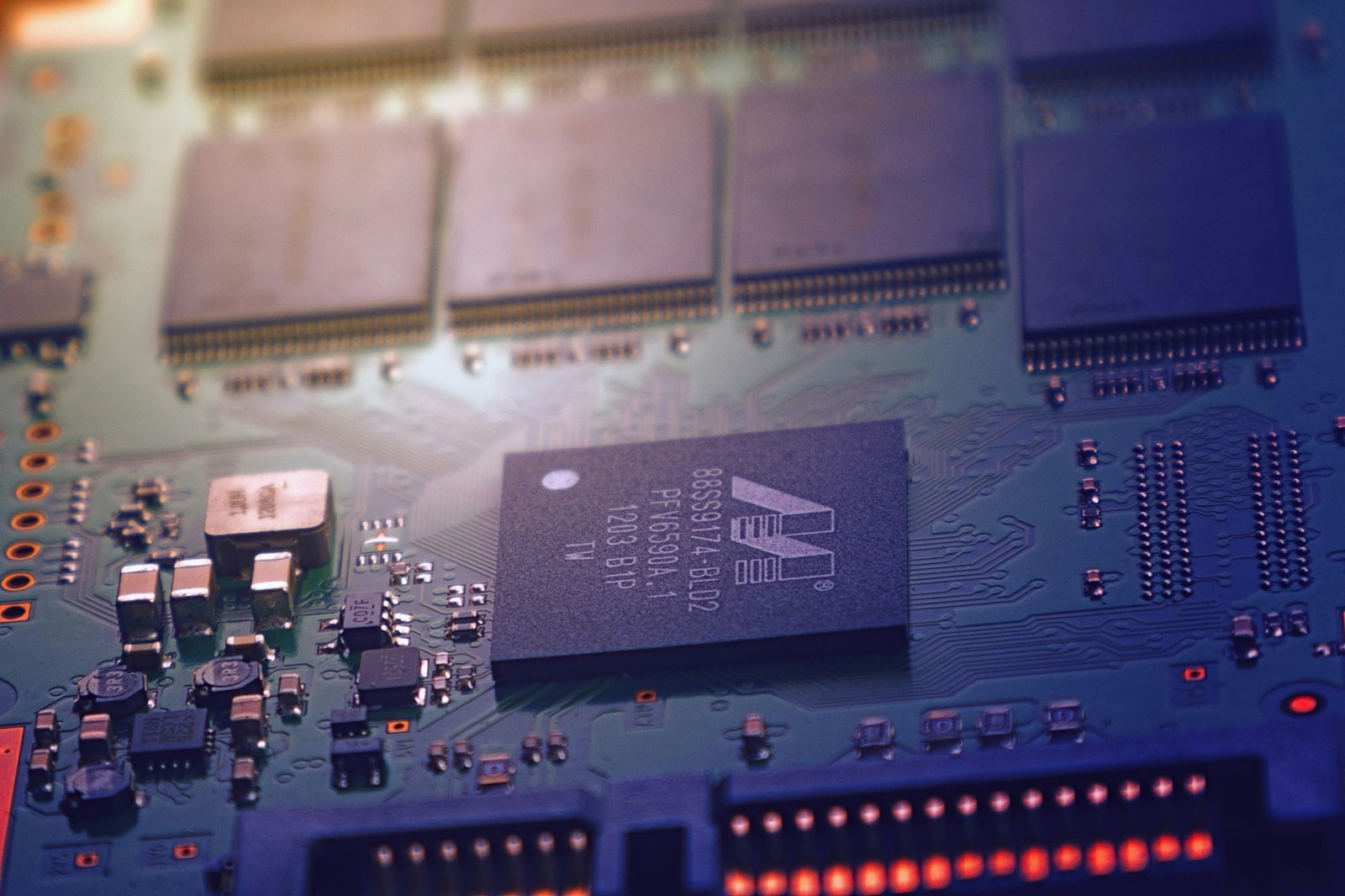Have you ever stopped and wondered if humans are actually artificial intelligence? It’s a thought-provoking concept that challenges our understanding of intelligence and consciousness. In this article, we will explore the idea of whether humans can be classified as artificial intelligence, shedding light on the intricate relationship between humans and the evolving world of technology. Brace yourself for an intriguing exploration of the boundaries between human and artificial intelligence and uncover the potential implications behind this fascinating notion.

Definition of Artificial Intelligence
Understanding Artificial Intelligence
Artificial Intelligence (AI) is a branch of computer science that focuses on creating intelligent machines capable of performing tasks that typically require human intelligence. This field has made significant advancements in recent years, enabling machines to handle complex tasks such as visual perception, speech recognition, and decision-making. AI involves the development of algorithms and models that mimic human cognitive processes, enabling machines to process large amounts of data and make informed decisions based on patterns and analysis.
Theories and Concepts of AI
Several theories and concepts underpin the development and understanding of AI. One key concept is machine learning, which refers to the ability of machines to learn from data and improve their performance over time without explicit programming. Another concept is neural networks, which are algorithms inspired by the structure and functionality of the human brain. Neural networks enable machines to recognize patterns and make predictions based on historical data.
Benefits and Applications of AI
AI has a wide range of benefits and applications across various industries. In healthcare, AI can help diagnose diseases, analyze medical images, and assist in drug discovery. In the financial sector, AI algorithms can predict market trends and optimize investment strategies. AI also plays a crucial role in transportation, where autonomous vehicles are being developed to enhance road safety and efficiency. Additionally, AI has the potential to revolutionize customer service, cybersecurity, and manufacturing, among other sectors.
The Complexity of Human Intelligence
Unique Characteristics of Human Intelligence
Human intelligence possesses several unique characteristics that set it apart from artificial intelligence. Human intelligence involves complex cognitive processes, such as reasoning, problem-solving, and creativity. Humans can perceive the world through their senses and apply subjective experiences and emotions to their decision-making. This emotional and intuitive component of human intelligence adds depth and complexity to human cognition.
The Evolution of Human Intelligence
Human intelligence has evolved over thousands of years, allowing humans to adapt and thrive in various environments. Our ability to innovate, communicate, and collaborate has enabled us to build complex societies and technologies. Through natural selection and genetic variation, humans have gradually developed higher cognitive capacities and advanced problem-solving skills.
The Role of Consciousness in Human Intelligence
Consciousness plays a fundamental role in human intelligence. It refers to our awareness of ourselves and the world around us. Consciousness enables us to reflect on our experiences, form beliefs, and have a sense of self. Although the nature of consciousness is still not fully understood, it is closely intertwined with human intelligence and influences our decision-making and behavior.
Comparing Human Intelligence to Artificial Intelligence
Understanding Human Intelligence
Human intelligence encompasses a broad range of cognitive abilities, including language acquisition, logical reasoning, and emotional intelligence. Humans have a unique capacity for abstract thinking and can make connections between seemingly unrelated concepts. This capacity for creativity and originality sets human intelligence apart from AI.
Defining Artificial Intelligence
Artificial intelligence, on the other hand, focuses on creating machines that can mimic or replicate certain aspects of human intelligence. AI systems aim to process and analyze vast amounts of data, detect patterns, and make predictions or decisions based on the information available to them. While AI can be highly specialized and excel in specific tasks, it lacks the comprehensive cognitive abilities and subjective experiences of human intelligence.
Similarities and Differences between Human and Artificial Intelligence
Human intelligence and artificial intelligence share some similarities but also have significant differences. Both involve processing information and making decisions, but the underlying processes and mechanisms are vastly different. Human intelligence incorporates emotions, intuition, and creativity, while AI relies on algorithms, data, and mathematical models. The limitations of AI lie in its inability to experience consciousness, subjective emotions, and adapt to novel situations in the same way that humans can.
The Turing Test and the AI Debate
Alan Turing’s Test for Machine Intelligence
Alan Turing, a renowned computer scientist, proposed a test known as the Turing Test to determine whether a machine can exhibit intelligent behavior indistinguishable from that of a human. The test involves a human evaluator engaging in a conversation with both a machine and another human without knowing which is which. If the evaluator cannot consistently differentiate between the machine and the human, the machine is considered to have passed the test.
Arguments for and against AI Passing the Turing Test
The Turing Test has sparked debates regarding the capabilities and limitations of AI. Proponents argue that if a machine can pass the test, it demonstrates a level of intelligence comparable to human intelligence. They believe that machines could potentially develop consciousness and subjective experiences. However, critics argue that passing the Turing Test does not necessarily indicate true intelligence and consciousness. They contend that machines are only capable of simulating human-like behavior without possessing genuine understanding or self-awareness.
The Possibility of Human-like AI
The question of whether human-like AI is achievable remains unresolved. Some researchers and experts believe that it is possible to create machines that can replicate human intelligence to a significant extent. They hypothesize that advancements in AI, particularly in the fields of deep learning and neural networks, could lead to the development of machines capable of complex reasoning and emotional understanding. However, others believe that the subjective nature of human consciousness makes it difficult, if not impossible, to create machines that fully possess the richness of human intelligence.

The Philosophy of Mind and AI
Exploring Philosophical Perspectives on Mind and Consciousness
The intersection of AI and the philosophy of mind raises thought-provoking questions about the nature of consciousness and the mind. Philosophers have long debated whether the mind is purely a result of complex biological processes or if it incorporates non-physical components. This debate has implications for our understanding of AI, as it forces us to consider whether machine intelligence can ever truly replicate the shifting states of human consciousness.
The Relationship between Mind and Machine
The relationship between the mind and machines is complex. While machines can process information and perform tasks, they lack the subjective experience and self-awareness that humans possess. The philosophical concept of the “hard problem of consciousness” highlights the challenge of understanding how subjective experiences arise from physical processes. AI systems, as of now, focus on simulating intelligent behavior rather than capturing the full range of human experience.
Implications for Human Intelligence and AI
Exploring the philosophy of mind in the context of AI raises important ethical and existential questions. As AI capabilities continue to advance, it becomes crucial to consider the potential impact on human identity and the nature of intelligence. If machines were to develop human-like consciousness, how would it affect our understanding of what it means to be human? These questions require careful ethical consideration to ensure that AI development aligns with human values and respects our unique qualities.
The Nature-Nurture Debate in Intelligence
The Influence of Genetics on Intelligence
The nature-nurture debate explores the relative contributions of genetic factors and environmental influences to human intelligence. Genetic studies have shown that intelligence has a hereditary component, with certain genetic variations associated with higher cognitive abilities. However, the role of genetics is complex, and environmental factors also play a significant role in intelligence development.
The Effects of Environment on Human Intelligence
Environmental influences, such as early childhood experiences, education, and socio-economic factors, contribute to the development of human intelligence. Access to quality education, a stimulating environment, and supportive relationships can enhance cognitive abilities and nurture the potential of individuals. Environmental factors also shape the way humans learn, think, and solve problems, influencing the unique characteristics of human intelligence.
AI’s Lack of Biological Factors
Artificial intelligence is devoid of biological factors and does not possess a genetic or environmental framework for intelligence development. AI development focuses on algorithmic improvements and data analysis rather than biological processes. This fundamental difference is what distinguishes AI from human intelligence, as machines lack the inherent capacity for genetic variation and the ability to learn and adapt in the same way that humans do.

The Future of AI and Human Intelligence
Advancements in Artificial General Intelligence (AGI)
Artificial General Intelligence (AGI) refers to the development of AI systems that possess the ability to understand, learn, and perform any intellectual task that a human being can. While current AI systems are narrow in scope and excel in specific domains, AGI aims to create machines with general intelligence. Achieving AGI would require significant advancements in machine learning, cognitive science, and neuroscience.
Ethical Considerations of Human-like AI
As AI continues to progress towards human-like capabilities, it raises ethical considerations and dilemmas. The development of AGI with consciousness and subjective experiences would require careful ethical guidelines to ensure the responsible use of such technology. Questions of AI rights, moral decision-making, and the potential impact on human society need to be addressed to prevent unintended consequences and ensure the overall benefit to humanity.
Collaboration between Humans and AI
The future of AI and human intelligence lies in collaboration and synergy. Rather than viewing AI as a threat to human capabilities, there is potential for humans and machines to work together to solve complex problems and enhance human potential. AI systems can augment human intelligence by processing vast amounts of data, providing insights, and automating repetitive tasks. This partnership between humans and AI has the potential to drive innovation and address global challenges more effectively.
The Potential Integration of AI and Human Intelligence
Cognitive Augmentation with AI
Cognitive augmentation refers to the use of AI and technology to enhance human cognitive abilities. AI systems can assist in memory recall, decision-making, and problem-solving by providing personalized recommendations and real-time insights. By leveraging AI’s computational power and analytical capabilities, individuals can expand their intellectual capacities and accomplish tasks more efficiently.
AI’s Role in Enhancing Human Intelligence
AI has the potential to enrich human intelligence by complementing our abilities and filling gaps in our cognitive processes. For example, AI algorithms can process vast amounts of data and identify patterns that humans may overlook. This can lead to more informed decision-making and innovative problem-solving. Additionally, AI-based tools can provide personalized learning experiences and adapt to individual needs, fostering continuous intellectual growth.
The Concept of Transhumanism
Transhumanism is an ideology that explores the intersection of technology and human intelligence, advocating for the enhancement of human capabilities through scientific advancements. It envisions a future where humans can transcend their biological limitations through the integration of AI and other technologies. While the concept of transhumanism raises ethical concerns and societal implications, it highlights the potential for AI to revolutionize human intelligence and redefine what it means to be human.
AI’s Impact on Human Society
Automation and Job Displacement
AI’s impact on the job market is a topic of concern and debate. The automation of routine tasks through AI technologies can lead to job displacement in certain industries. However, it is important to note that AI also creates new job opportunities and shifts the nature of work. It enables humans to focus on more complex and creative tasks, fostering innovation and economic growth.
The Changing Landscape of Work and Education
The integration of AI in the workforce requires a shift in the skills and knowledge required for employment. As AI systems perform routine tasks, individuals need to develop skills that are complementary to AI, such as critical thinking, creativity, and emotional intelligence. The education system needs to adapt to this changing landscape by emphasizing these skills and preparing individuals for a future where collaboration with AI becomes the norm.
Addressing Social and Ethical Implications
AI’s growing presence in society raises social and ethical concerns that must be addressed. Issues such as data privacy, algorithmic bias, and the concentration of power in AI systems need careful consideration to ensure equitable and fair implementation. Ethical frameworks and regulatory measures must be developed to guide the responsible development and use of AI, protecting individual rights and promoting societal well-being.
Conclusion
Reflection on Human Intelligence
Human intelligence is a complex and multifaceted phenomenon that incorporates emotions, consciousness, and abstract thinking. It has evolved over time, enabling humans to adapt and create remarkable advancements. The uniqueness of human intelligence lies in its subjective experiences and ability to navigate the world through intuition and creativity.
The Ongoing Development of AI
Artificial intelligence, while impressive, is distinct from human intelligence. AI focuses on creating machines that can process and analyze data, make decisions, and perform tasks without possessing consciousness or subjective experiences. AI has made significant strides in various domains, but it still lacks the complexity and richness of human intelligence.
Considering the Interplay between Humans and Machines
As AI continues to advance, it is crucial to explore the interplay between humans and machines. Collaboration between humans and AI has the potential to drive innovation, enhance human intelligence, and address societal challenges more effectively. However, ethical considerations and responsible development are paramount to ensure that AI aligns with human values and respects the unique qualities of human intelligence. By embracing the possibilities of AI, we can shape a future where humans and machines coexist harmoniously, harnessing the benefits of both realms.






